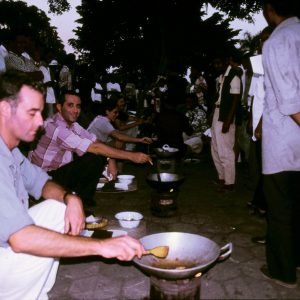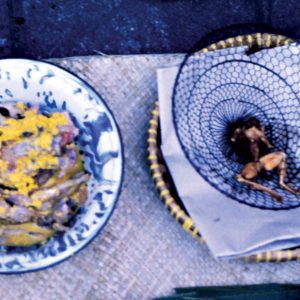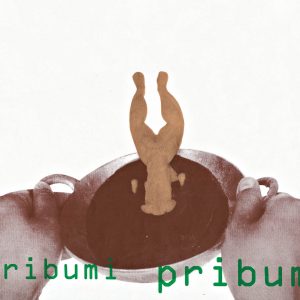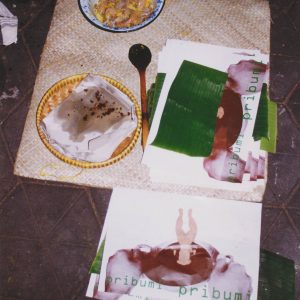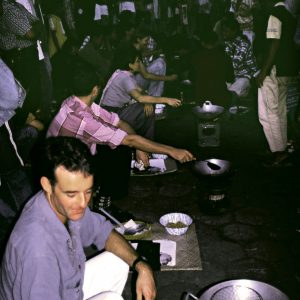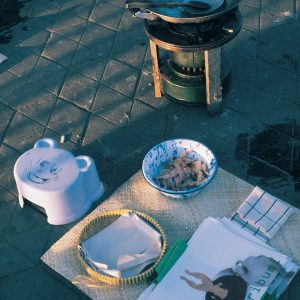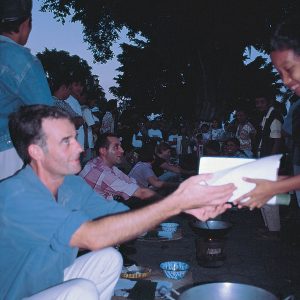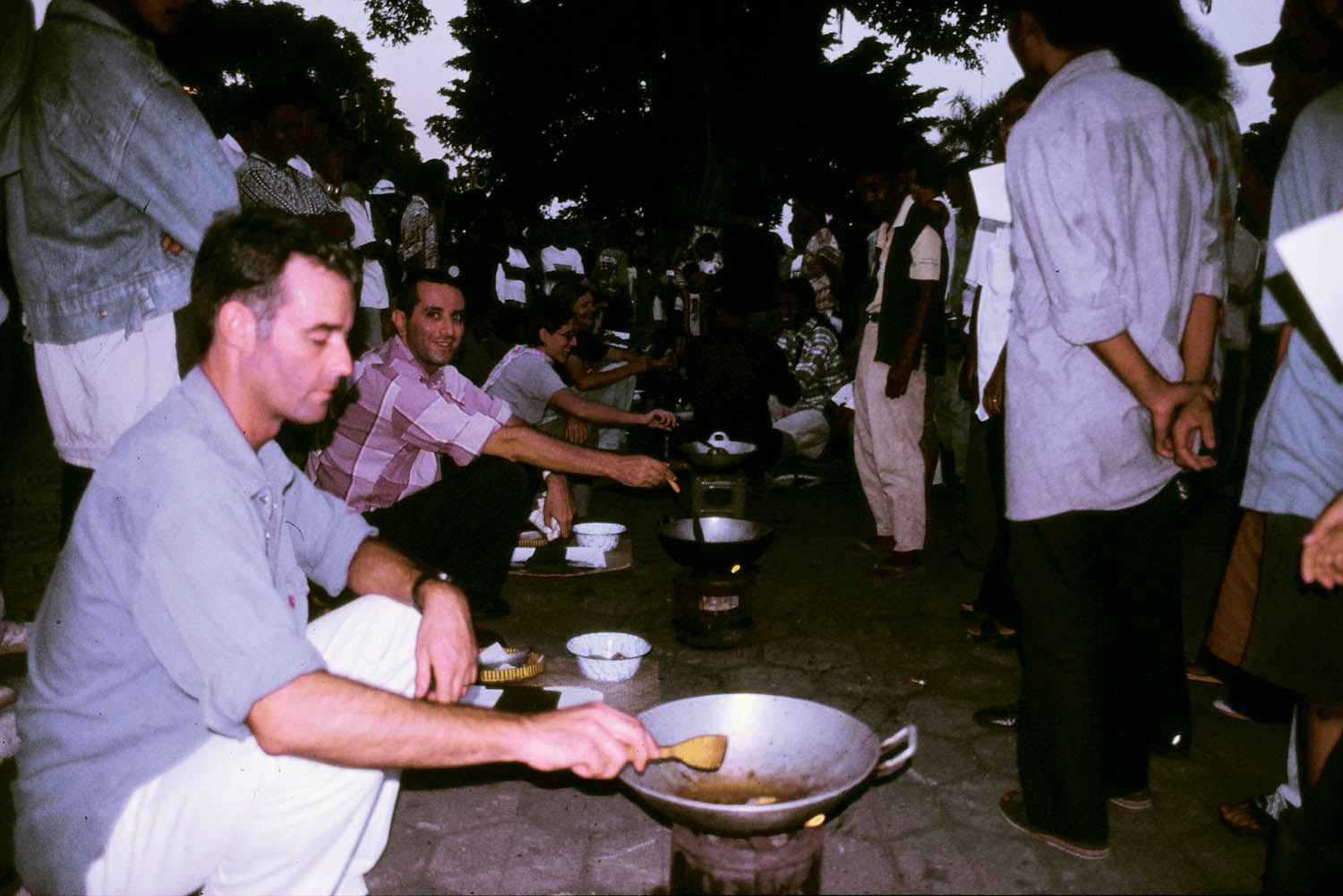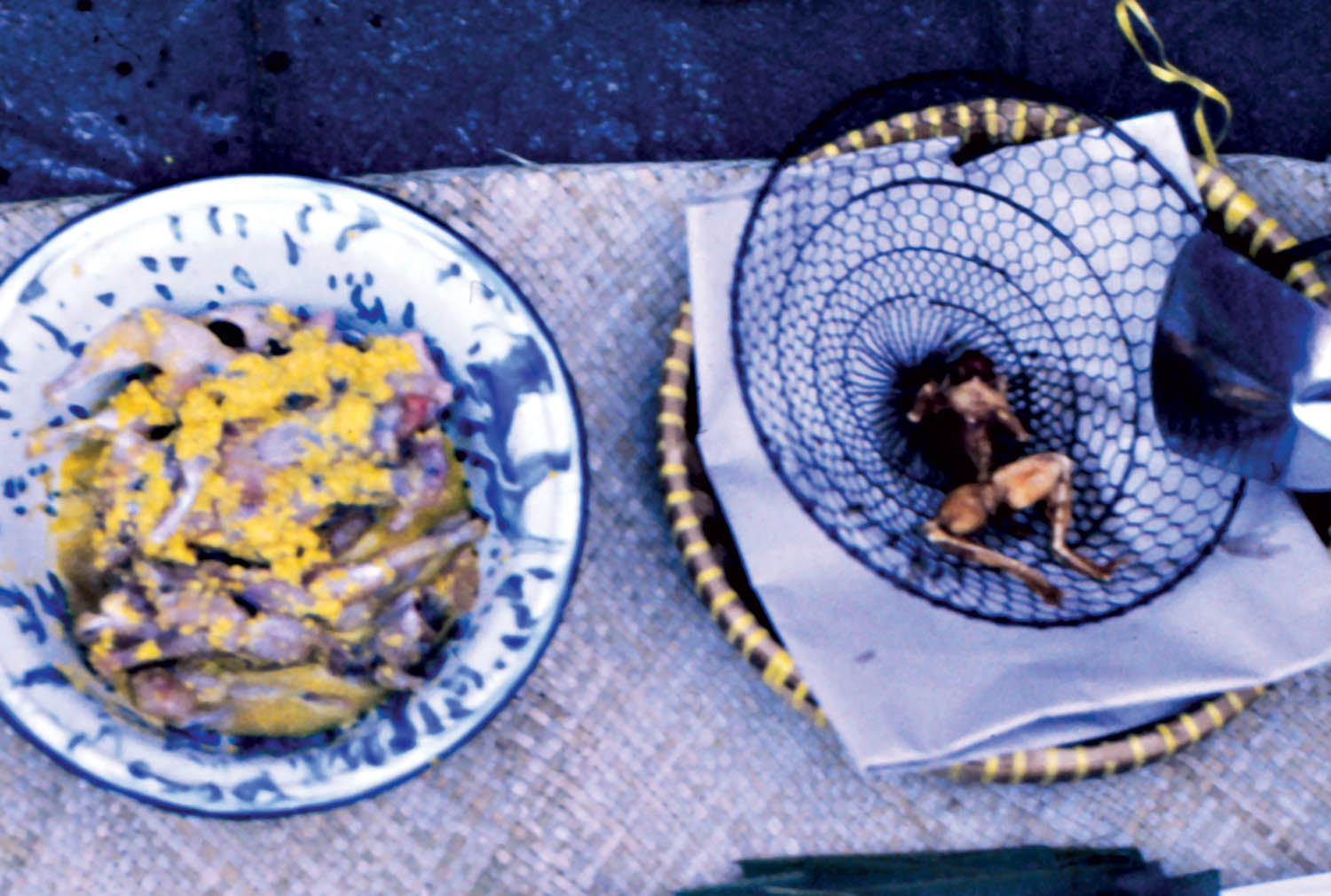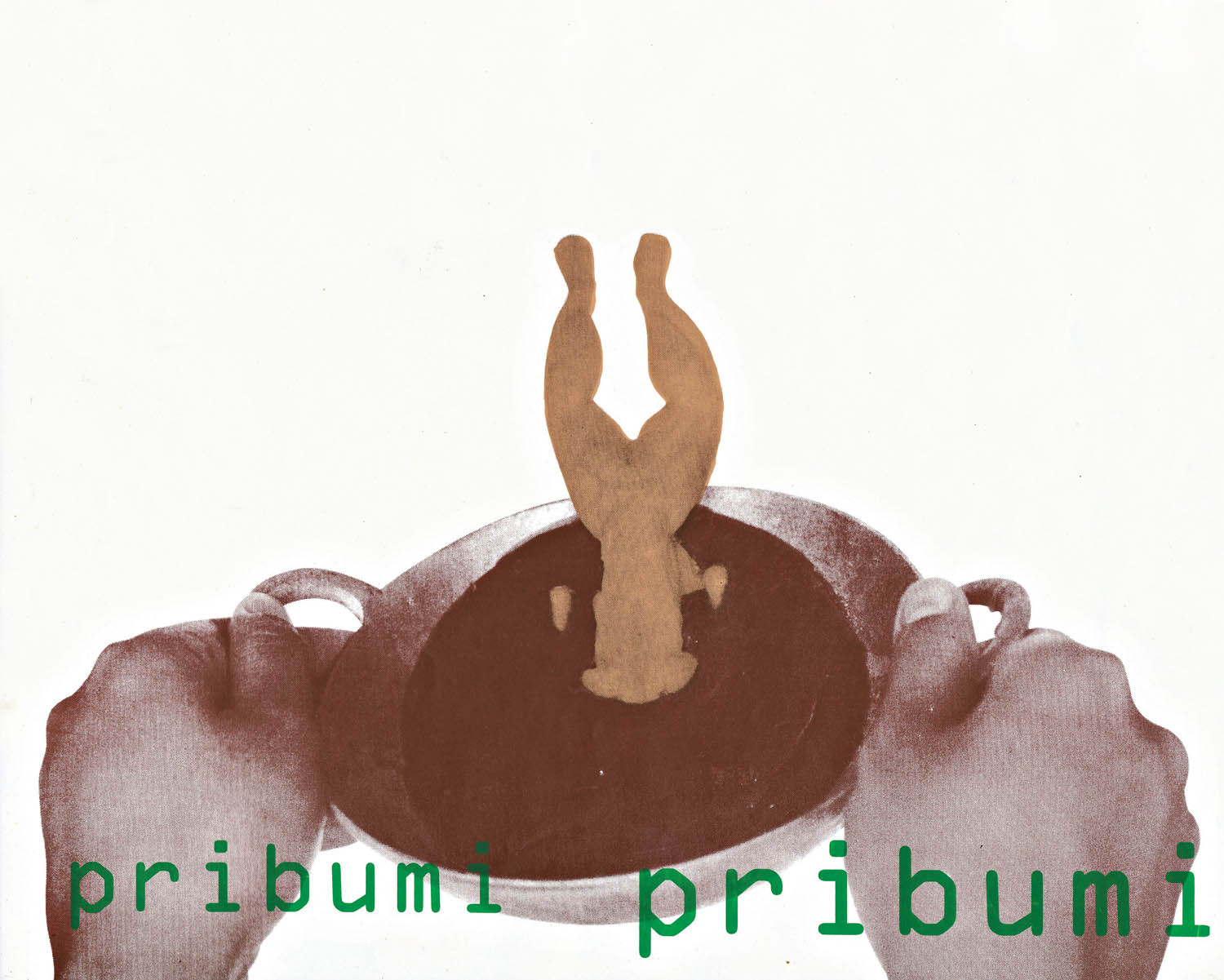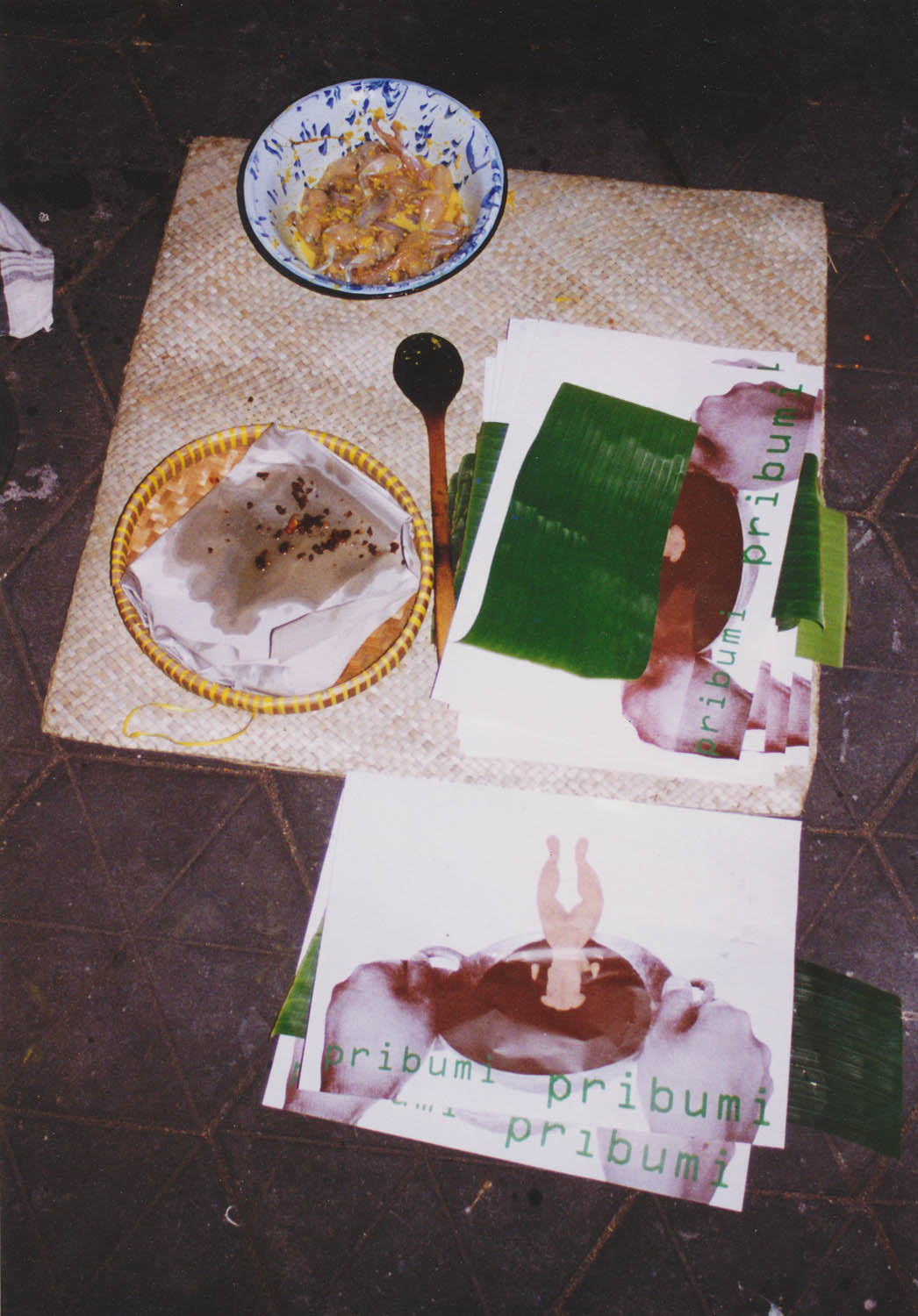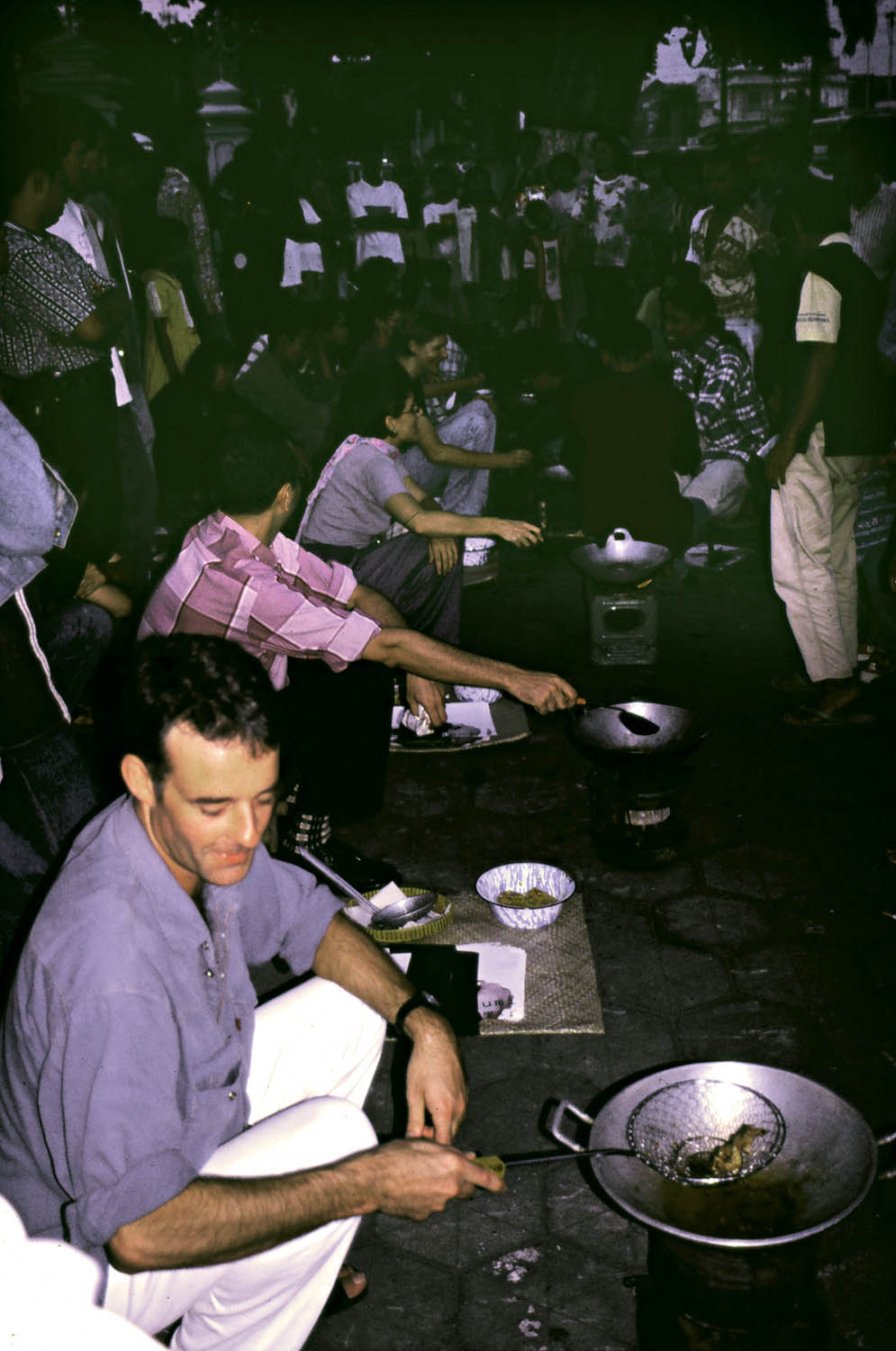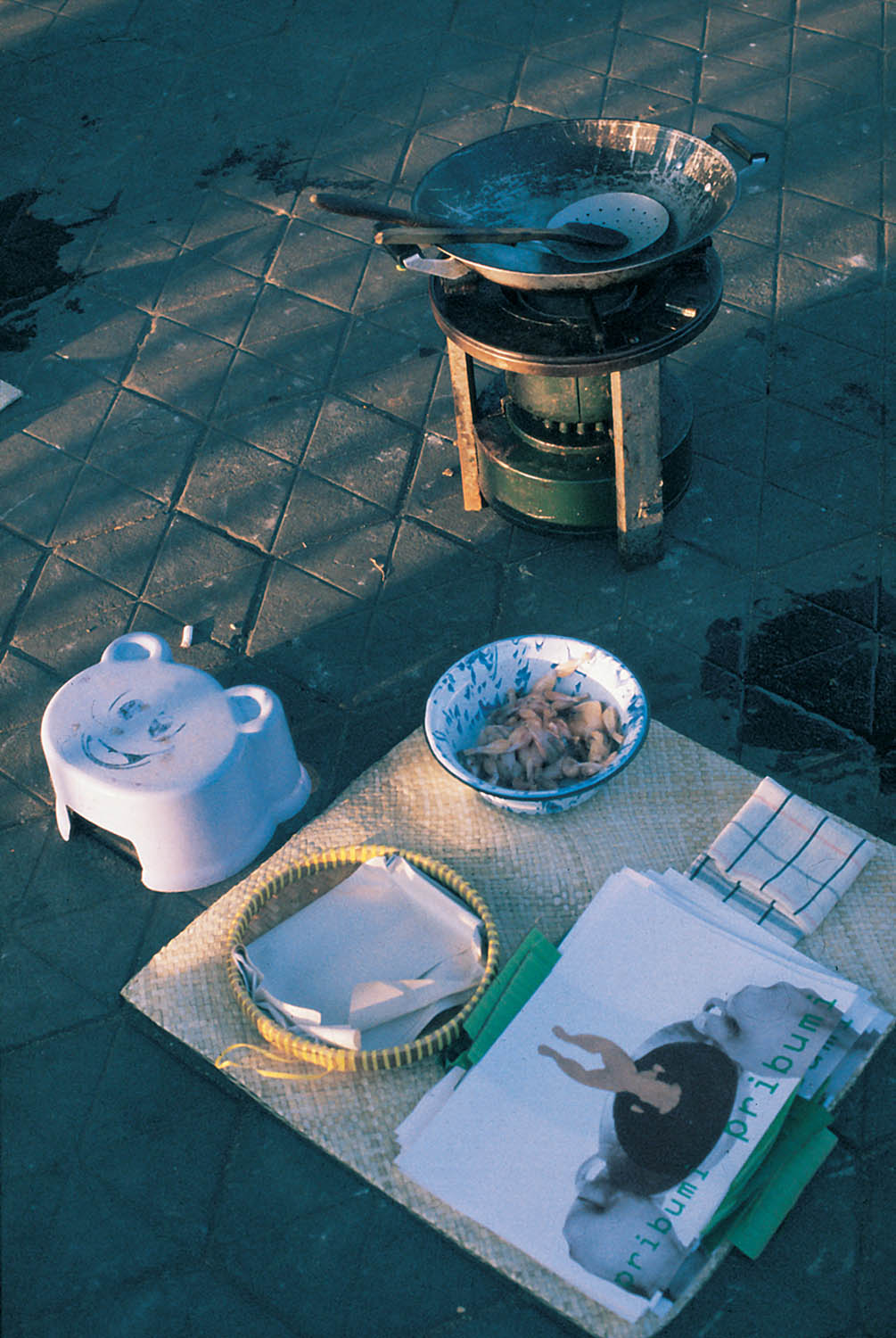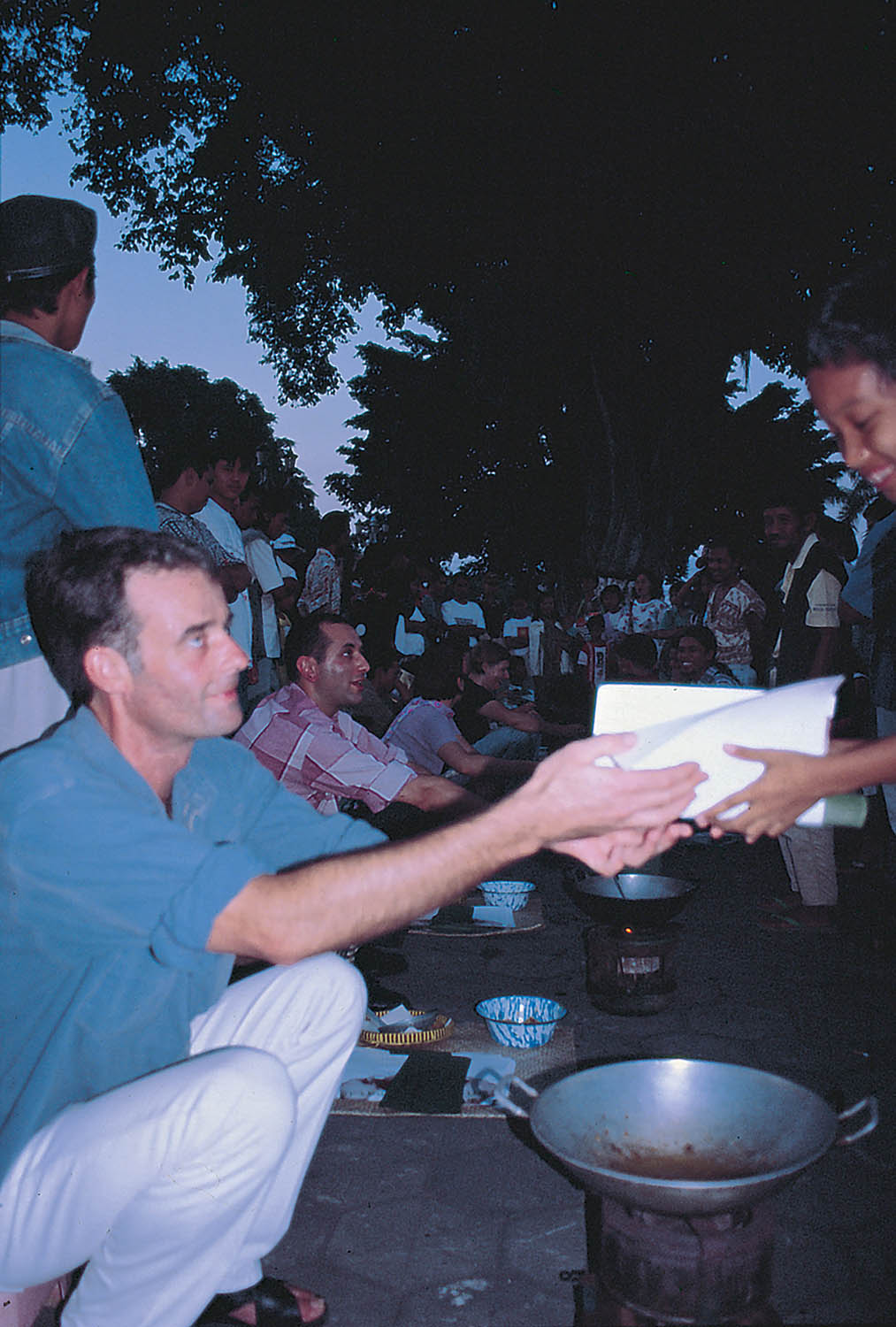Frying of frog legs -a Chinese delicacy- by seven Westerners, opening up a dialog about what happened to the Chinese ethnic community during the riots in Jakarta and Solo in May 1998.
For the performance ‘Pribumi – Pribumi’, I used frog legs to question the different roles animals play in human culture (holy, food, pest, pet, dirty, etc). The food itself reveals different cultural perceptions.
Everyone who confronts my work relates to it from different backgrounds and cultures, with highly personal sets of taboos. Each person therefore experiences the work in a different way. I want my work to relate to these specific audiences, to address some of their taboos and interpretations. This takes great sensitivity. Therefore I try to find ways to open up dialog, rather than work in a confrontational way. I don’t look at materials as a symbol for something, rather I select materials or forms that bring forward the meaning in a direct way. I use materials, in this case frog legs, as an idiom.
During the political and racial riots in Indonesia in 1998, which marked the ending of the Suharto regime, it didn’t make sense to keep working in a studio while students were brave enough to demonstrate and risk their lives. After stories appeared about what had happened to the ethnic Chinese community during the riots, I decided to do a performance in the streets. Chinese people are the black sheep of Indonesian society and in times of chaos, like during the riots in 1998, anger was redirected onto this ethnic minority. The position of the Chinese in Indonesian society has its roots in the colonial era; the Chinese were the middlemen between the Dutch and the native Indonesians, they were traders and had access to better education.
During the 1998 riots, Chinese-owned shops were destroyed by fires, and in the cities of Jakarta and Surakarta, Chinese people were killed and raped. In Yogyakarta, the city where I live, Chinese shop owners started to protect their shops from fire and demolishment, putting signs on their closed doors that read: “Native shop owner”, or “Native Muslim shop owner”. I was shocked to see this racial outpour, and a month and a half after Suharto resigned, I decided to do a performance in the streets.
I looked for a way to communicate and open up a dialog about what had happened to the Chinese community. I decided to work with food. I used frog legs, because Chinese consider frog legs a delicacy while Muslims consider it to be unclean (haram). The food itself thus reveals different cultural perceptions. I created the performance ‘Pribumi–Pribumi’ (translation: “natives”) for which I invited friends -foreigners who live in Yogyakarta- to fry frog legs with me in the street and serve them to the public. “Westerners” can also be considered a minority, but one that people look up to. I used the position of my “western” friends to trigger questions from the public: “Why fry frog legs in such sensitive times?”
